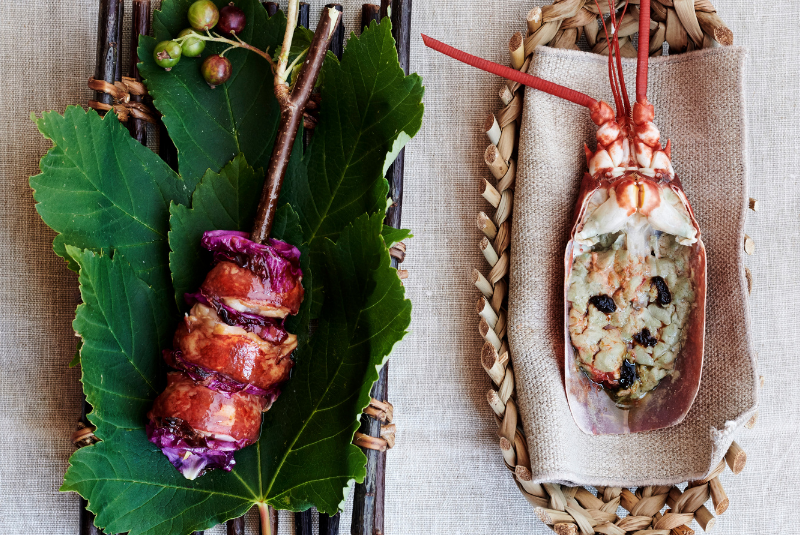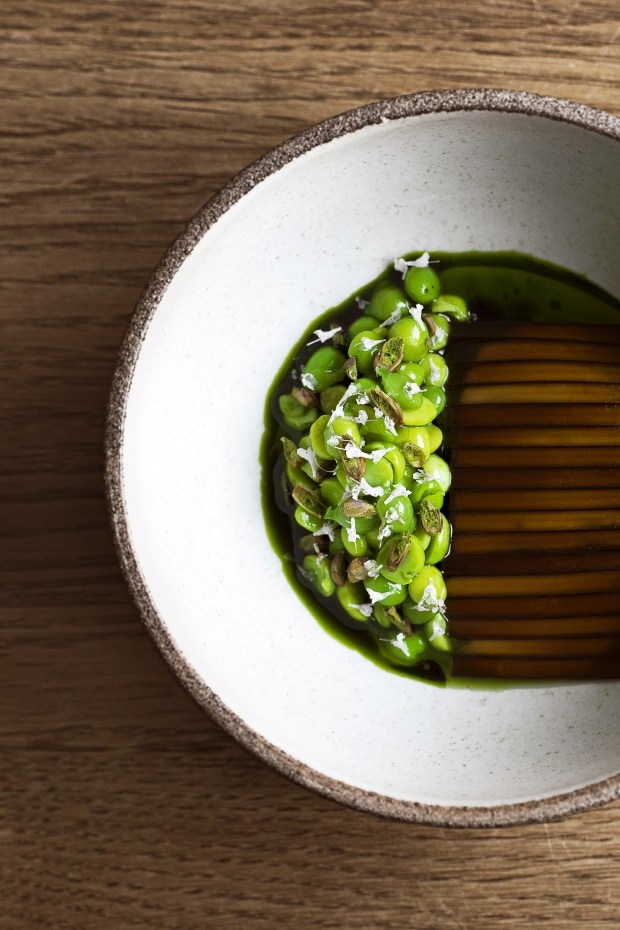Noma
World-renowned Nordic tasting menu known for foraging and fermentation
World-renowned Nordic tasting menu known for foraging and fermentation

/cdn.vox-cdn.com/uploads/chorus_image/image/66802790/noma_label.0.jpg)
:no_upscale()/cdn.vox-cdn.com/uploads/chorus_asset/file/10348649/Salat_with_sea_snails_and_rose_petals.jpg)








/cdn.vox-cdn.com/uploads/chorus_image/image/69521036/image002.0.jpg)





/cdn.vox-cdn.com/uploads/chorus_image/image/69954312/1235713520.7.jpg)


:no_upscale()/cdn.vox-cdn.com/uploads/chorus_asset/file/22689632/21_06_NOMAFERMENTATION11532_aRGB_High.jpg)


/cdn.vox-cdn.com/uploads/chorus_image/image/69853692/noma_label.0.jpg)


/cdn.vox-cdn.com/uploads/chorus_image/image/71844888/Salat_with_sea_snails_and_rose_petals.0.jpg)

/cdn.vox-cdn.com/uploads/chorus_image/image/66502016/noma_label.0.jpg)

























"I’d love to see what the fuss is about: Copenhagen’s uber-famous dining experience Noma, which holds three Michelin stars and has been named the world’s best restaurant multiple times, clearly knows what it’s doing, and chef René Redzepi is especially skilled at fermentation. The New York Times bestselling The Noma Guide to Fermentation (by Redzepi and chef David Zilber) serves as an at-home bible for making incredible dishes and condiments and is a fascinating look at how Noma does what it does." - Alex Zaragoza
"When it surged to the forefront in 2010 as the “World’s Best Restaurant,” Noma popularized the iconic image of the foraging chef—tousled, kneeling in a mossy pine forest, plucking wild herbs and even ants—and helped reel diners into a romanticized link between foraging and local tradition. I saw how that aesthetic and Redzepi’s approach were quickly fetishized, spawning a generation of chefs and “I foraged with Rene Redzepi” narratives, and how small-scale foraging morphed into commercialized “wild-washing.” Noma also radically changed Denmark’s dining scene by bringing money, tourism, and skilled labor, but even as it relocated in 2017 and moved past a strict foraging focus, its influence helped define the Nordic region for years and had real, sometimes negative, ripple effects on the broader food system." - Nick Curtin
"Located in Copenhagen, New Noma reopened in a different space in February 2018 with a tasting-menu concept that now rotates a few times a year; it debuted on the World's 50 Best list at No. 2 in 2019 and, after finally earning its third Michelin star, has repeatedly been discussed as the most likely candidate to reclaim the No. 1 slot. I note that the restaurant previously earned top honors in 2014, 2012, 2011, and 2010, but because the rules exclude the original Noma from returning, those earlier wins did not count toward the new incarnation — and now that Noma 2.0 has itself won, the coverage pointed out it should be off the list the following year unless René Redzepi reboots the concept or the organization changes its rules again." - Eater Staff
"I noted René Redzepi’s Noma has long dominated the World’s 50 Best lists—winning in 2010, 2011, 2012, 2014 and 2021—and that New Noma, which opened in its current Copenhagen location in February 2018 with a tasting menu that now rotates several times a year, created eligibility complications after the organization’s 2019 rule change (which bars previous No. 1 restaurants from winning again), meaning Noma’s repeated wins have prompted questions about future eligibility unless the restaurant reboots again or the rules change." - Eater Staff
"The Copenhagen tasting-menu institution Noma, René Redzepi’s renowned restaurant long associated with expensive, tasting-menu fine dining, has repeatedly occupied the top slot (2010, 2011, 2012, 2014, 2021) and returned to win after reopening in its current location in February 2018; because of World’s 50 Best rules that disqualify prior winners, the new Noma’s future eligibility was described as uncertain unless another reboot or rule change occurs." - Eater Staff